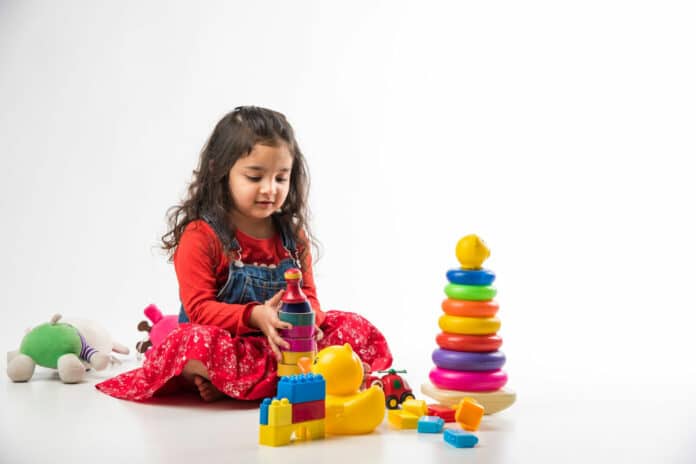A study led by the Universitat Pompeu Fabra Barcelona Center for Brain and Cognition investigates whether children who have yet to learn to speak or are developing speech are capable of reasoning.
It is found that natural, logical reasoning can be developed from 19 months of age, without language knowledge, and is developed mainly through the strategy of exclusion by elimination. They use natural, logical thinking, even before they learn to speak, to deal with uncertainties about the world.
When toddlers are faced with an unknown reality, they will attempt to analyze it and form a conclusion by ruling out the choices that are not possible based on their current level of understanding.
The new study analyses the importance of two strategies for infants to deal with uncertainties: association and exclusion (or disjunction elimination). The first strategy involves toddlers mentally associating a new word with each of them, then associating the term with the object with which this name fits better.
The second strategy explains how toddlers can learn a new word through logical reasoning by eliminating alternatives. For example, if they see two objects (A and B) and hear an unknown term that they know is not A (because they know the name of A), they will determine that it is the name of B. This is the predominant strategy.
The new study involved participants who were shown two objects and had to associate one of the words they heard with it. The researchers conducted two trials, one with 61 monolingual (26) and bilingual (35) 19-month-old children and the other with 33 (19 mono and 14 bilingual). Each group’s investigation was important in determining if deductive processes depend on language expertise.
The first test involved looking at two known objects and hearing a term associated with one of them. The second test involved showing an object they knew and an unknown one and hearing the word corresponding to the known object. The third test was similar, but the word heard corresponds to the unknown word.
The second experiment involved using two objects or animate beings, each associated with a sound, and having one of them covered so the infant could only see one. The toddler had to guess which one was inside the glass. The third test involved the infant listening to the sound associated with one of the objects and analyzing whether they looked in the correct direction.
The studies evaluated infants’ gaze movement patterns, such as reasoning by exclusion, in which they look at item A and rule out a term relating to it before turning their focus to object B, known as the double-check strategy.
The main author of the research, Kinga Anna Bohus, said, “We studied the presence of the concept of logical disjunction in 19-month-old infants. In a word-referent mapping task, bilingual and monolingual infants display a pattern of oculomotor inspection previously found to be a hallmark of disjunctive reasoning in adults and children”.
In conclusion, the study discovered no significant differences in logical thinking between monolingual and bilingual toddlers, demonstrating that it is not dependent on language skills. This natural, logical reasoning might be present before 19 months. However, there is currently insufficient empirical data to show it’s present at earlier ages.
Journal Reference:
- Kinga Anna Bohus,Luca Lorenzo Bonatti, et al. The scope and role of deduction in infant cognition. Current Biology. DOI: 10.1016/j.cub.2023.08.028
